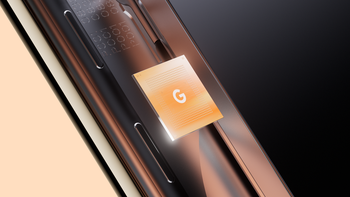Samsung may be reconsidering chip strategy for Galaxy phones but Google will still stick with it for Tensor 2

Google has already shown us what the Pixel 7 and 7 Pro will look like and has also revealed that the handsets will be powered by the second generation Tensor processor and will run Android 13. New details have now emerged about Google's second in-house smartphone chip.
The Tensor was co-developed by Samsung and Google and appears to borrow heavily from Exynos foundational blocks and IPs, though the Mountain View giant has put its own twist on it. The chip features a different CPU setup than other SoCs, opting for a 2+2+4 configuration instead of a 1+3+4 big+mid+little configuration. The chip has two Cortex-X1 cores, two Cortex-A76 middle cores, and four A55 cores. It has an 80 percent faster CPU and a 370 percent faster GPU than Pixel 5's Qualcomm Snapdragon 765G.
Naver News (via @GaryeonHan) now reports that Samsung will also collaborate with Google on the next Tensor chip that will underpin the Pixel 7 range that will apparently be unveiled in full in October. Mass production will begin in June and the chip will be based on the South Korean giant's 4nm process. For reference, the first Tensor chip was manufactured using the 5nm tech, so a smaller node should theoretically deliver better performance and efficiency.
Samsung will reportedly use the panel-level packaging (PLP) tech for the chip because of its cost benefits and higher manufacturing efficiency.
Whether it was the right call to stick with Samsung is another story, considering the South Korean giant has received so much criticism for its recent Exynos chips that power its flagship phones that it may not manufacture any new chips for its premium phones for the time being and may instead completely rely on Qualcomm.
Not much else is known about the second-gen Tensor, except that it has the model number GS201 and will feature the unreleased Exynos Modem 5123. More details should become available as the Pixel 7 range's arrival approaches.
The Pixel 7 will have an updated horizontal camera array and is expected to use the same screens as the Pixel 6 range with a few changes. New evidence seems to suggest the two phones might be accompanied by a third high-end Pixel 7 Pro-like model with a 120Hz screen.













Things that are NOT allowed: